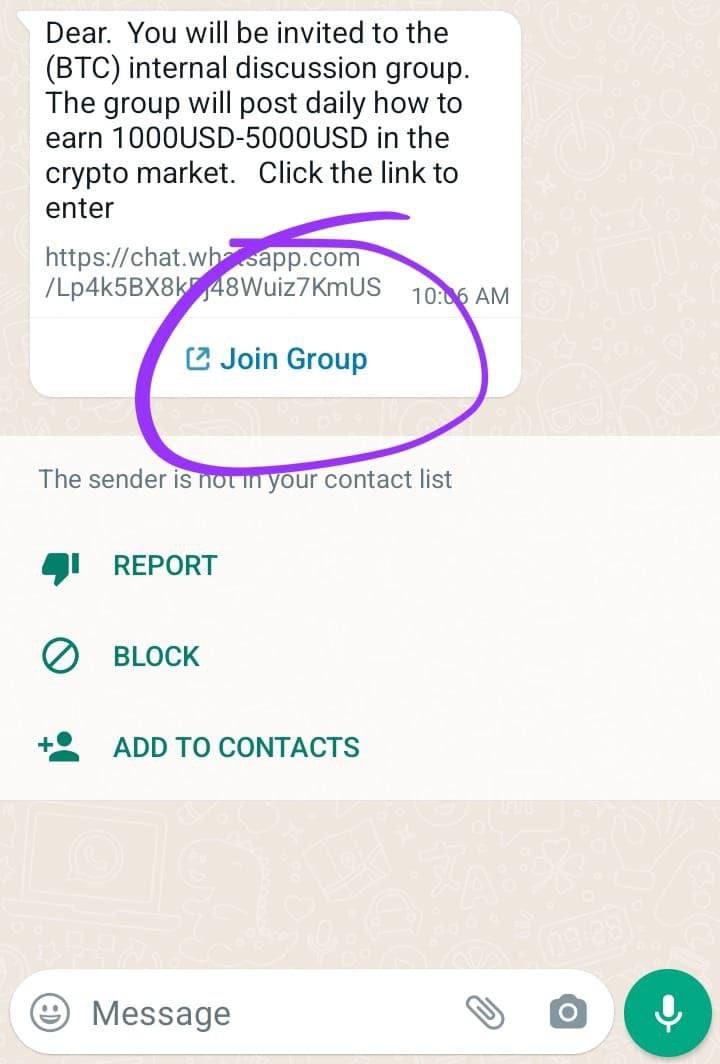It seems like you're encountering a situation where a spam message with a clickable link is being sent to you on WhatsApp. While I can't provide specific details about the technical methods used by spammers, I can offer some insights into how such messages might be generated and why you're able to interact with the link without directly replying or saving the contact.
Link Previews: Messaging apps like WhatsApp often generate link previews automatically. This means that when a link is included in a message, the app might fetch the associated content (like a title, description, and thumbnail) and display it as a preview. This preview could include a "Join Group" button if the link leads to a group invite.
Web Crawlers: Spammers might be using web crawlers to find and extract group invitation links from public sources on the internet. These links are then sent as messages to various users.
Temporary Contact: The spammer might send the message from a temporary or disposable phone number, which would make it harder to track them down or for users to block them by saving the number. The clickable link could still generate a preview without you needing to save the contact.
Exploiting App Behavior: It's possible that spammers are exploiting a vulnerability or a loophole in the app's behavior that allows clickable links to be displayed without the need to save the contact.
User Interface Choices: WhatsApp's user interface might intentionally allow clickable links in certain scenarios to make it easier for users to engage with content. However, this can also be abused by spammers.
It's important to note that engaging with such spam messages, even by clicking on the links, can potentially lead to privacy and security risks. It's always a good practice to avoid interacting with suspicious or unsolicited messages.
WhatsApp continuously works on improving its security measures and user experience to counter such spam activities. If you encounter such messages frequently, consider reporting them to WhatsApp or blocking the sender to minimize their impact on your experience.



